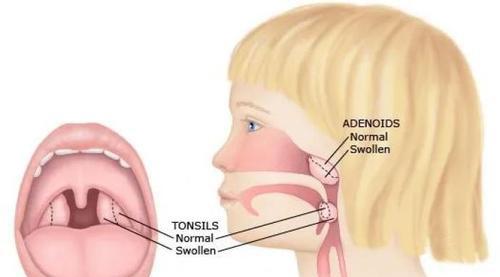Adenoids and tonsils are one of the important tissues of the throat, adenoids, tonsil surgery is one of the common surgeries in otolaryngology, mainly for children performed a kind of surgery, can be performed alone, but often performed at the same time as tonsille removal.
Why cut adenoids and tonsils

From an immune point of view, due to the immune effect of the tonsils on the body, they should not be removed arbitrarily. If tonsillitis recurs, obstructing breathing and swallowing, causing rheumatism and nephritis and other diseases, it should be removed promptly.
Otherwise, it will have more impacts on the child:
1. The child is in a chronic hypoxic state for a long time during sleep, which affects growth and intellectual development;
2. Long-term breathing with the mouth will cause damage to the face, adenoidal face, upper lip upturned, jaw elongation, etc.;
3. It is easy to induce upper respiratory tract infections, causing children to often catch colds repeatedly;
4. It is easy to induce tonsil enlargement and otitis media, which affects the child's speech pronunciation and hearing.
Many patients' families are very vague about postoperative care, and the matters that should be paid attention to after discharge are also confused, in order to avoid improper postoperative patient care caused by some unnecessary accidents, we explain to you about the tonsils, adenoids after surgery, these matters are worth noting!
(1) 6 hours after general anesthesia surgery: you can drink water and eat fluids. The next day without significant pharyngeal pain, you can enter a normal liquid food without special attention. However, if tonsil surgery is done at the same time, parents still need to pay attention to the diet after surgery, mainly based on liquid food and semi-liquid food.
(2) The second postoperative precaution is to prevent infection. Be sure to prevent upper respiratory tract infections and try to avoid places where the crowds are dense and the air is not circulating.
In addition, you need to be vigilant against wound infection, if the child has nasal pain is more obvious, and accompanied by fever, you should take the child to the hospital in time to see if there is a wound infection. If the wound is infected, it must be treated in time.
It is normal for children who have had tonsil surgery at the same time to experience painful swallowing. However, if the child has painful swallowing than just after the operation, it is necessary to consider whether there is an infection after the operation, and should go to the hospital for examination at the first time.
(3) 2 weeks after surgery: avoid eating hard, hot or acidic foods, and at the beginning of eating semi-liquid foods such as cold milk, ice cream, cold broth, etc., and then gradually transition to thin porridge, soft rotten noodles, etc. Also avoid eating with a straw.
(4) Maintain oral hygiene: Rinse your mouth with water or mouthwash after meals.
(5) Prohibit strenuous activities: exercise and play should pay attention to the appropriate amount, not strenuous exercise. There are not too many requirements for sleeping positions, but if you can, try to stay in a side recumbent position.
If parents find that their child often has nasal congestion or snoring during sleep, they should take their child to the OTS department to check whether the child has adenoidal hypertrophy.